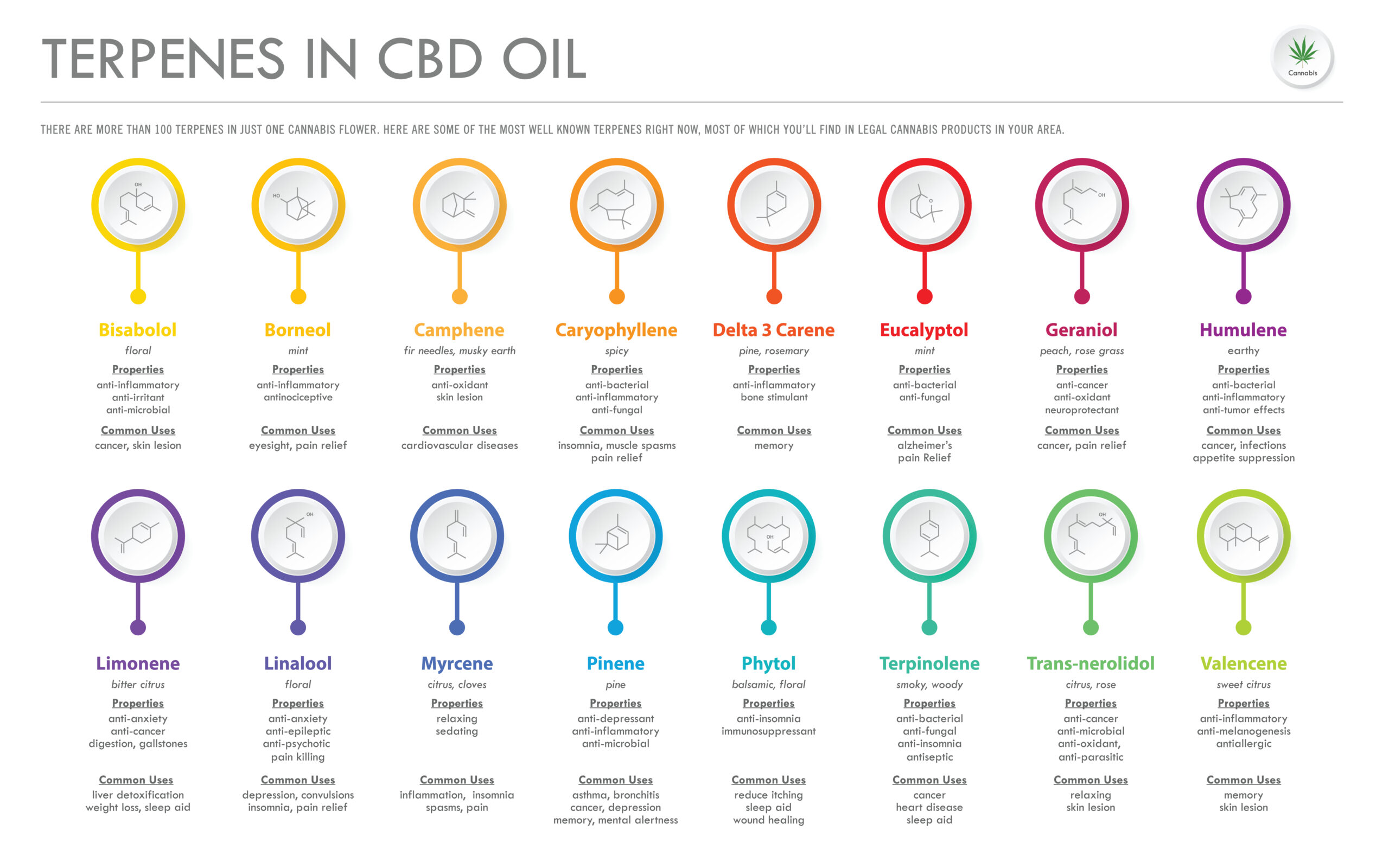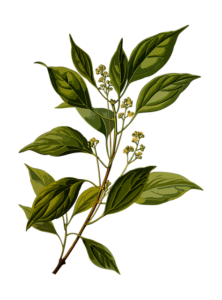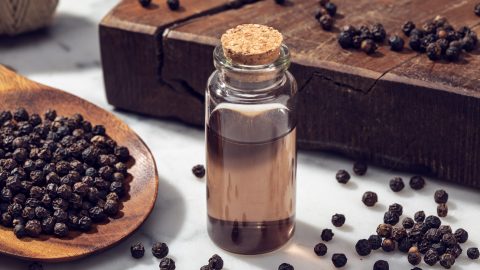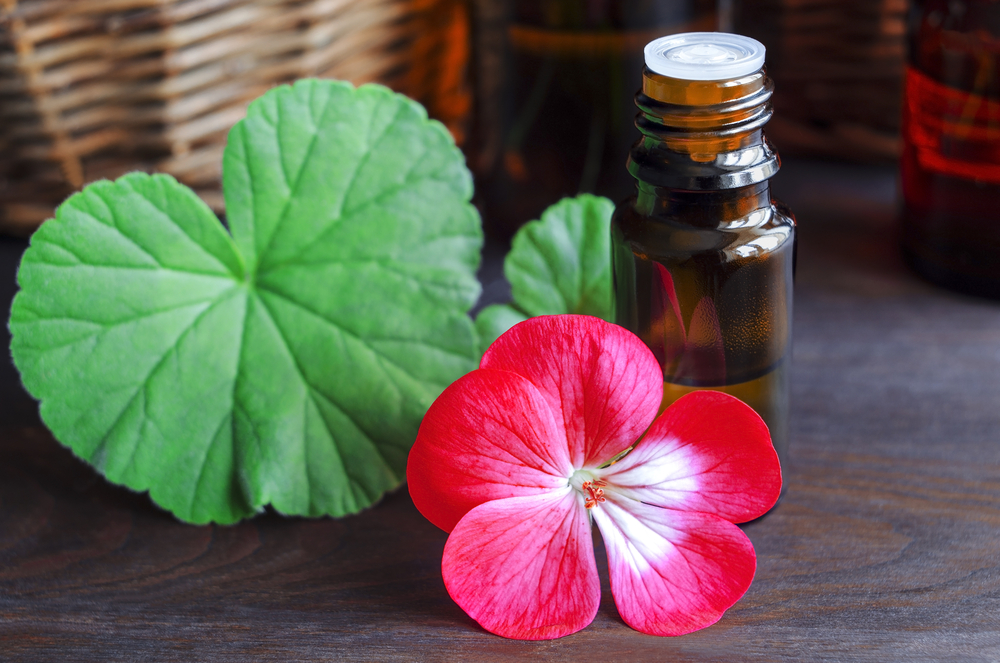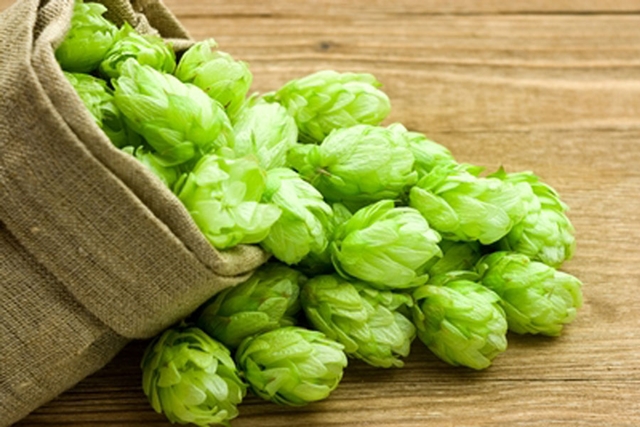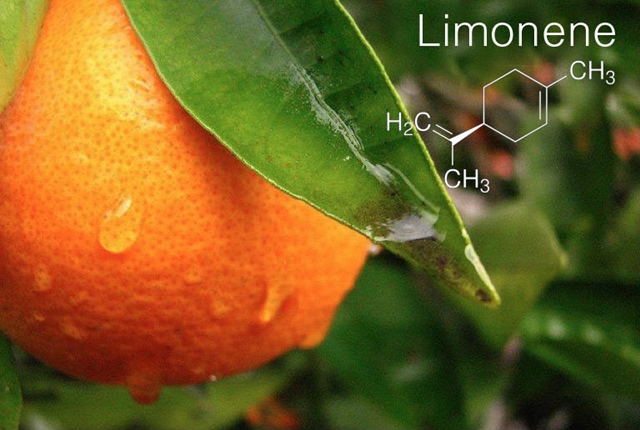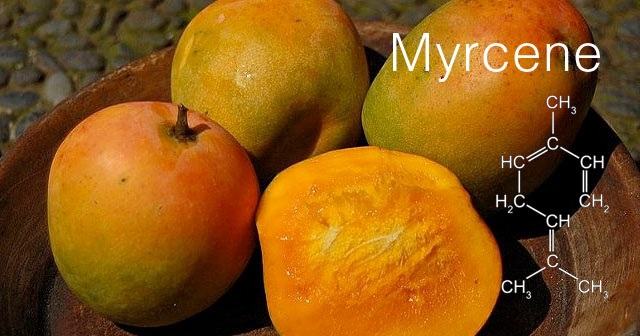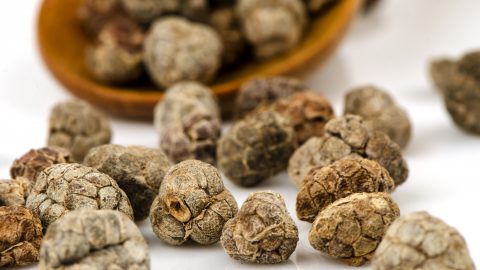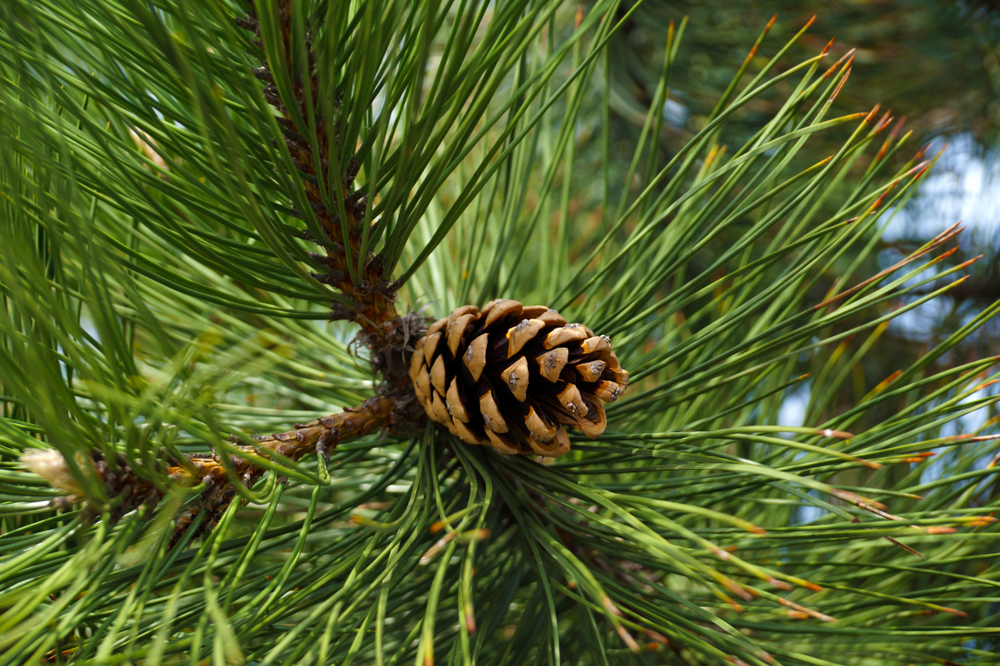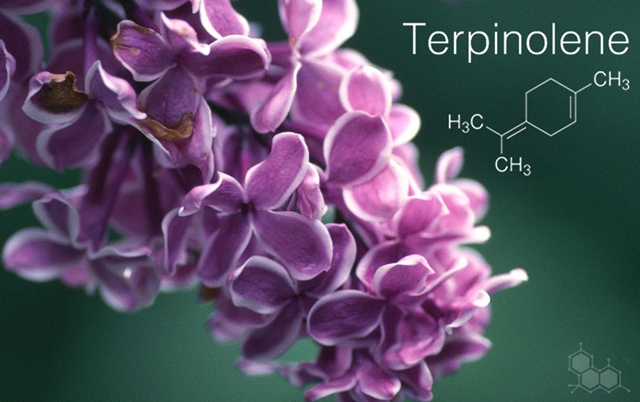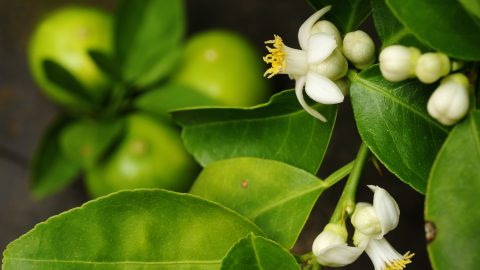What is Caryophyllene?
Caryophyllene is present in many herbs and spices; including black pepper, basil, and oregano, and cannabis. Strains with high levels of caryophyllene deliver a spicy warmth to the nose, similar to cinnamon and cloves. When it come to the spicier side of the spectrum, caryophyllene holds the trophy for the spiciest.
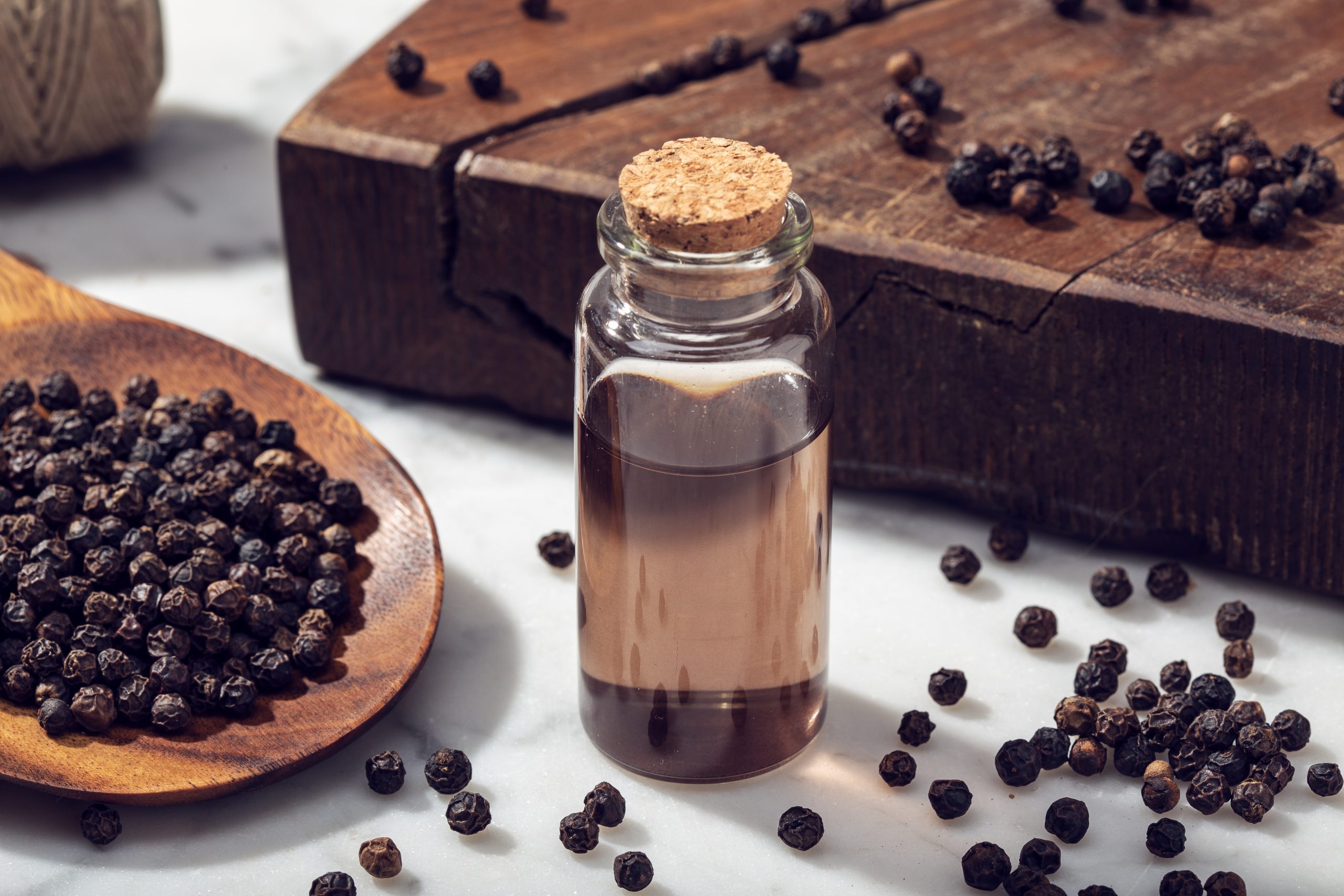
What is Beta-caryophyllene (BCP)?
Beta-caryophyllene (BCP) is a sesquiterpene found in many plants such as Thai basils, cloves, cinnamon leaves and black pepper, and in minor quantities in lavender. It’s aroma has been described as peppery, woody and/or spicy. Caryophyllene is the only terpene known to interact with the endocannabinoid system (CB2). Studies show β–caryophyllene holds promise in cancer treatment plans. Research shows shows that β–caryophyllene selectively binds to the CB2 receptor and that it is a functional CB2 agonist. Further, β–caryophyllene was identified as a functional non-psychoactive CB2 receptor ligand in foodstuff and as a macrocyclic anti-inflammatory cannabinoid in cannabis.
Beta-caryophyllene (BCP) is a terpene found in many plants such as basil, cloves, rosemary, frankincense, cinnamon, and oregano. As a result, it has earned the FDA’s “generally recognized as safe” designation. It’s one of the more abundant terpenes found in most strains of the cannabis plant. The aroma of BCP has been described as woody and peppery. Like other terpenes, BCP is not intoxicating. And interestingly, it’s the only terpene known to interact with the endocannabinoid system at the CB2 receptor.
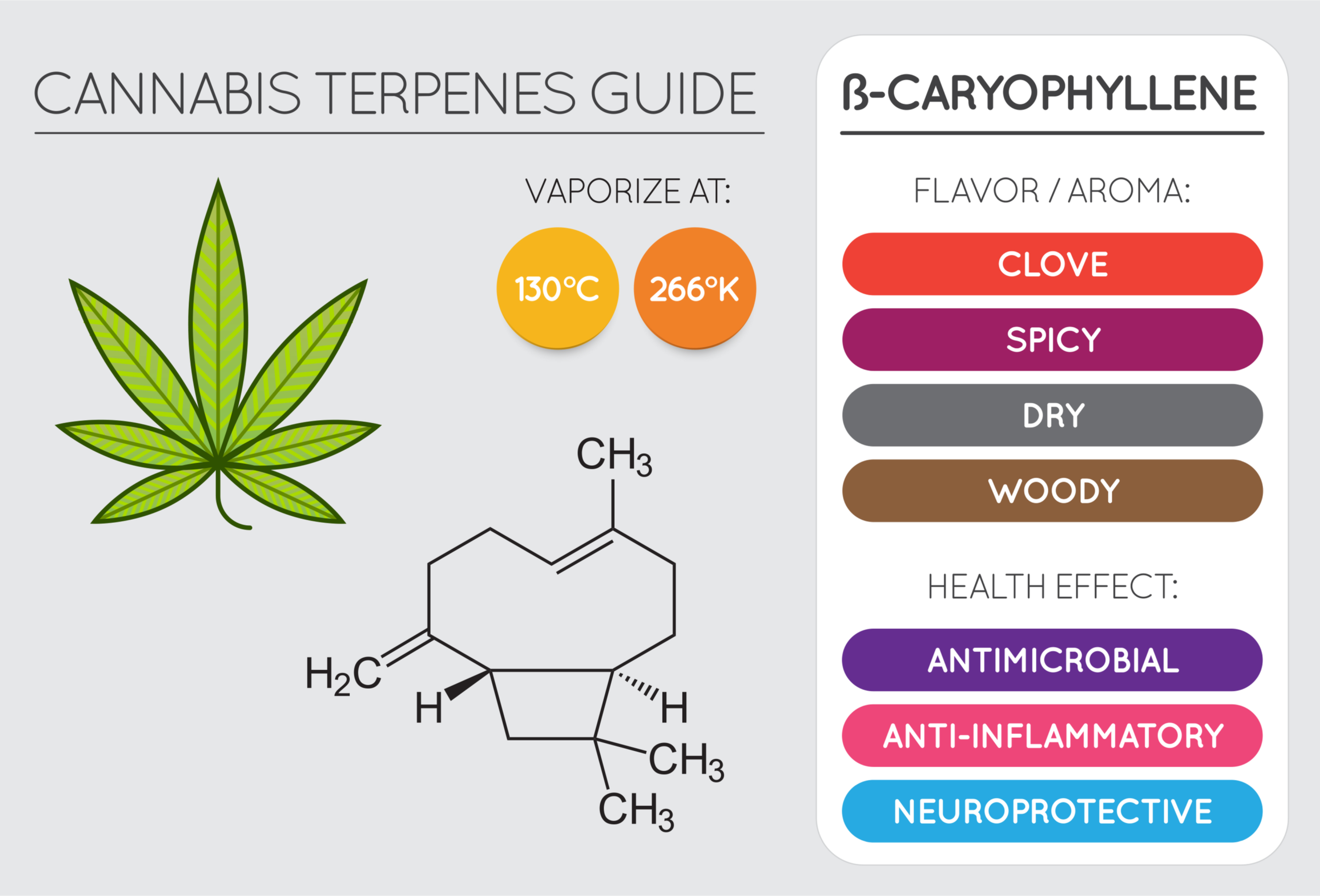
BCP may help with anxiety and depression
Research indicates activation of CB2 receptors by BCP may play a role in the treatment of anxiety and depression. A 2014 animal study suggested BCP may produces multiple behavioral changes relevant to anxiety and depression in mice. Therefore, the researchers concluded BCP may improve the symptoms of these mood disorders.
BCP may reduce brain inflammation in Alzheimer’s Disease
Another study published in 2014 examined the anti-inflammatory effect of BCP in a mouse model of Alzheimer’s disease. The study concluded that activation of CB2 receptors by BCP may have a beneficial effect in reducing Alzheimer’s inflammatory response. Because of this, the researchers recommended BCP should be examined further for possible future drug development for Alzheimer’s Disease.
Inflammatory Bowel Disease may be improved by BCP
A 2011 study evaluated the effects of BCP on chemically-induced colitis (large bowel inflammation) in mice. Researchers found BCP exhibited both preventative and therapeutic effects. The study concluded with additional investigation, BCP may be a potential future treatment for inflammatory bowel disease in humans.
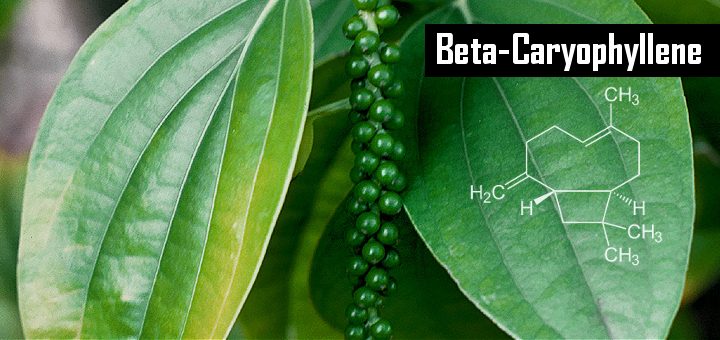
BCP may improve nerve pain
Finally, a 2014 study investigated the pain-relieving effects of BCP in animal models of inflammatory and nerve pain. The study concluded that BCP may be effective in the treatment of prolonged, debilitating pain without any evidence of tolerance.
Research to date suggests BCP has a wide array of potential health benefits. Continued investigation will help to clarify results of these initial studies and may also reveal possible new therapeutic benefits.
References
Bahi A et al; β-Caryophyllene, a CB2 receptor agonist produces multiple behavioral changes relevant to anxiety and depression in mice; Physiology and Behavior; 2014 Aug; 135: 119 – 124.
Cheng Y et al; β-Caryophyllene Ameliorates the Alzheimer-Like Phenotype in APP/PS1 Mice through CB2 Receptor Activation and the PPARγ Pathway; Pharmacology; 2014 Aug; 94(1-2): 1 – 12.
Bento A et al; β-Caryophyllene Inhibits Dextran Sulfate Sodium-Induced Colitis in Mice through CB2 Receptor Activation and PPARγ Pathway; American Journal of Pathology; 2011 Mar; 178(3): 1153 – 1166.
Klauke A et al; The cannabinoid CB₂ receptor-selective phytocannabinoid beta-caryophyllene exerts analgesic effects in mouse models of inflammatory and neuropathic pain; European Neuropsychopharmacology; 2014 Apr; 24(4): 608 – 620.
https://www.ncbi.nlm.nih.gov/pmc/articles/PMC2449371/
https://www.ncbi.nlm.nih.gov/pmc/articles/PMC4789136/
https://www.ncbi.nlm.nih.gov/pmc/articles/PMC2768535/
https://www.sciencedirect.com/science/article/abs/pii/S0031938414003400
Author Bio:
Dr. Wright Penniman M.D. is a board certified family physician with 15 years of clinical experience and 4 years of experience as a medical director with a major health insurance company.
Article written by Dr. Wright Penniman M.D.
What are Terpenes Series? Read More…
-
What are Terpenes?
What are Terpenes? Cannabis has a unique smell and terpenes are essential oils that give the many strains of...
-
What is Bisabolol? Alpha-bisabolol?
What is Bisabolol? Bisabolol is naturally present in German Chamomile (Matricaria chamomilla or Matricaria recutita) and the bark of the...
-
What is Borneol?
What is Borneol? Borneol is a terpene valued for its woody, camphor-like aroma. It is derived from a member...
-
What is Camphene?
What is Camphene? Camphene is monoterpene which emits pungent odors of damp woodlands and fir needles. Camphene may play...
-
What is Carene? Delta 3 Carene?
What is Carene? Carene is a bicyclic monoterpene with a scent similar to lemon, musk, and pine. It is...
-
What is Caryophyllene? Beta-caryophyllene (BCP)?
What is Caryophyllene? Caryophyllene is present in many herbs and spices; including black pepper, basil, and oregano, and cannabis....
-
What is Eucalyptol?
What is Eucalyptol? Eucalyptol is the primary terpene of the eucalyptus tree. It is also known as cineole. It...
-
What is Geraniol?
What is Geraniol? Geraniol produces a sweet, delightful smell similar to roses. This makes geraniol a popular choice for...
-
What is Humulene?
What is Humulene? Humulene is a sesquiterpene also known as α-humulene and α–caryophyllene; an isomer of β–caryophyllene. Humulene is...
-
What is Limonene? D-Limonene?
What is Limonene? Limonene is a monoterpenoid and one of two major compounds formed from pinene. As the name...
-
What is Linalool?
What is Linalool? Linalool is a monoterpenoid and has been described as having floral and lavender undertones. Varieties high...
-
What is Myrcene?
What is Myrcene? Myrcene, specifically β-myrcene, is a monoterpene and the most common terpene produced by cannabis (some varieties...
-
What is Nerolidol? Trans-Nerolidol?
What is Nerolidol? Nerolidol aka trans-nerolidol is a terpene found in many strong aromatic plants such as jasmine, tea...
-
What is Phytol?
What is Phytol? Phytol is grassy and balsamic in odor. It is naturally produced in green tea. Cannabis leaves...
-
What is Pinene? Alpha-pinene? Beta-pinene?
What is Pinene? Pinene is one of the most common terpenes in the plant world and is produced in...
-
What is Terpinolene?
What is Terpinolene? Terpinolene is a common component of sage and rosemary and is found in the oil derived...
-
What is Terpinene?
What is Terpinene? Terpinene is classified as a monoterpene. Alpha-terpinene (a-terpinene) derives naturally from cannabis and other plant sources,...
-
What is Terpineol?
What is Terpineol? Terpineol can refer to any combination of four monoterpene alcohol isomers (the most common of which...
-
What is Valencene?
What is Valencene? Valencene is a sesquiterpene that produces aromatic sweet, citrus, herb, and woody notes. Like Limonene, it...
